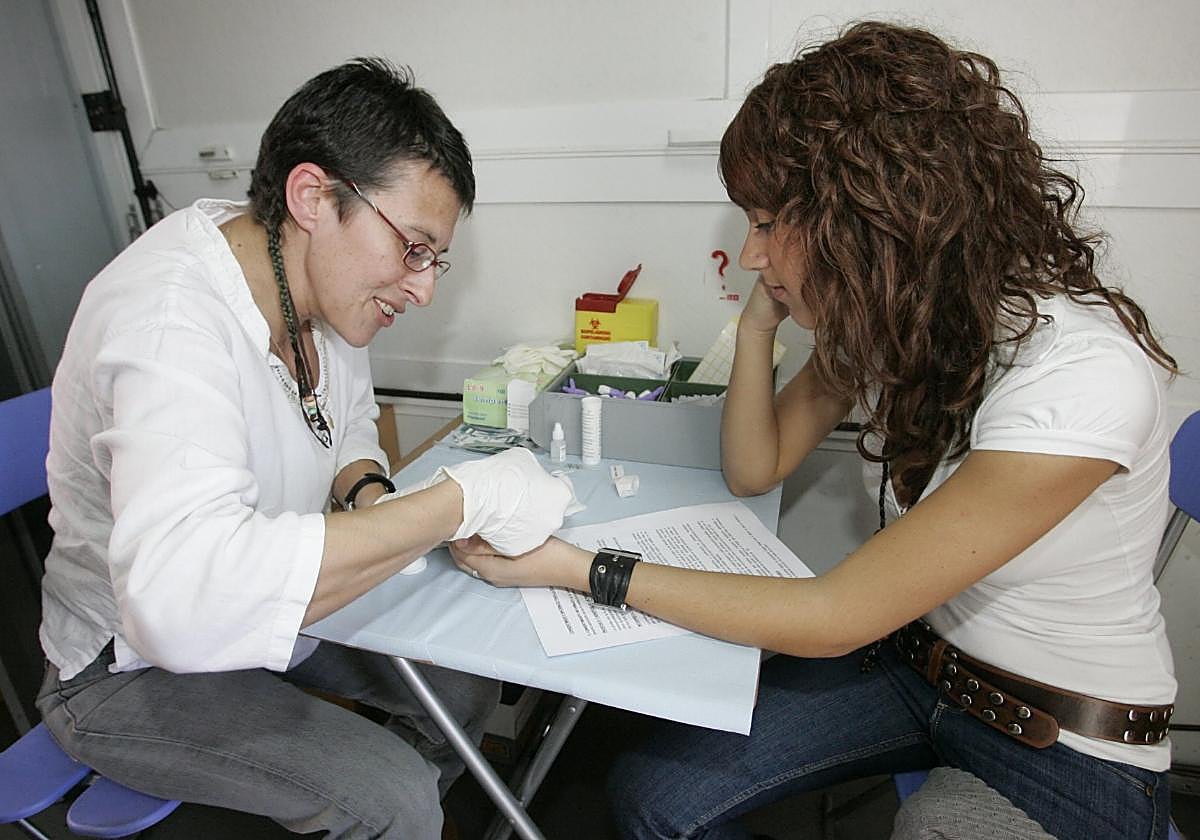Early diagnosis of HIV is a key to fighting the virus
Experts call for more diagnostic tests to put an end to this invisible infection and its transmission
Álvaro Soto
Madri
Friday, 1 December 2023, 16:06
A lot has happened since the human immunodeficiency virus (HIV) and the disease it causes, Aids, began ravaging societies around the world in the 1980s. Since then, some 40 million people have died of Aids, but there has also been a success story in this fight against HIV.
Unlike four decades ago, being diagnosed with HIV is no longer a death sentence as antiretroviral drugs have made it possible to live a normal life with HIV. However, this does not mean HIV stops being a problem now. So, in the wake of European Testing Week, which ran until last Monday (27 November), and World Aids Day 1 December, patients, doctors and industry experts reflect on this ongoing pandemic and its current challenges.
In Spain, between 136,000 and 162,000 people are HIV positive, according to statistics from the Ministry of Health. In addition, another 11,000 people live with the virus without even knowing. This figure represents 7.5% of patients, higher than the objectives set out by UNaids, which aims for 95% of those infected to be diagnosed, 95% to receive treatment and 95% to be undetectable cases (i.e. to have a low enough viral load that they are no longer contagious).
Experts are all in agreement that an early diagnosis is very important to curb the virus.
"Taking an HIV test is a very simple process and can be done at any level of the health care system: in primary care, in the hospital A & E, in an outpatient clinic or a generic hospital visit. Furthermore, the test can be done by physicians, but also by patient associations," explained Juan González del Castillo, coordinator of Infurg-Semes, the infectious diseases branch of the Spanish Society of Emergency Medicine.
The organisation, known as Semes, is promoting its Leave Your Mark (Deja tu huella) campaign in 141 hospitals throughout Spain, which seeks to raise awareness about the importance of an early diagnosis of HIV.
"We want to normalise getting tested for HIV, so that it can become something as common as a cholesterol test or going to the dentist. It can be a saliva or blood test, a little prick on the finger, and in 15 minutes you have the results," said Velayos.
"We need to normalise that a sexually active person should get tested for HIV and other sexually transmitted diseases at least a couple of times a year," she said.
Pau Árbos, director of the HIV unit at Gilead Spain, also advocates for more awareness about HIV and improving the lives of people with HIV.
"Addressing HIV has been a major milestone in medicine over the last century, and we must maintain the current high standard of treatment while continuing to work on challenges that remain," he said.
Another problem, which is yet to be overcome, is the stigma surrounding HIV/Aids.
"For patients, it is such a huge burden that affects their personal life, their professional life, their mental health. Let's think about something: about one in 300 are affected by HIV. Do we know anyone with HIV? Probability says we should, but we don't. And that happens because people with HIV remain invisible. We have to fight it through campaigns," said Velayos.
Yet, there is still recognition to be had for the positive progress we have made. "With HIV, we have gone from our first equation, which was 'silence equals death', to another, which is 'the patient has a quality of life he did not have before'," concluded Velayos. And the future? "The future depends on what we do today."
